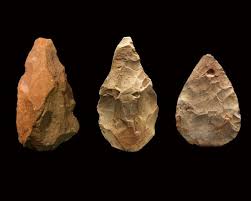UnconventionalEXPERTS.com
An Employee Workshop for Aspiring Experts

Unconventional Workshop 1
Expert is in our DNA
As human beings, we have the potential to become experts. As experts, we have the potential to greatly benefit the human kind.
Specialization and division of labor
Specialization is where production is focused on a limited scope of goods or services, to gain a greater degree of efficiency. Specialization is always a practical business strategy; when a company focuses their resources on a specific offering, they will have a higher chance of dominance within their given market. If they spread their specialization too wide, they can easily run out of resources. If they focus their specialization too narrowly, they can become overly niched within a market and run out of customers.
Division of Labor refers to specialization as it pertains to the work of individual workers, as they contribute to a common goal. Honey bees are well known for their skillfully orchestrated division of labor. Individual honey bee tasks reflect the requirements of the colony and the age of the bees. Worker bees perform roles that include honeycomb cleaning, cell building, larvae feeding, queen tending, food handling, hive security and foraging for nectar, pollen and water.
Our pre-human ancestors also used division of labor to make their lives more efficient. When pre-humans invented the world’s first complex cutting tools, they also developed the world’s first expert-level skilled trades people. By chiseling rocks, expert tool makers were able to create keen cutting tools with a variety of edges, for a sharper cut. These tools were advantageous over the first cutting tools, which were simple pointed rocks; and very similar to primitive tools that are made by monkeys. The leap from simple tools to complex tools took two million years. Within this time span, our pre-human ancestors not only learned how to modify stones, they learned how to pass their knowledge down from generation to generation.
pre-human ancestors also used division of labor to make their lives more efficient. When pre-humans invented the world’s first complex cutting tools, they also developed the world’s first expert-level skilled trades people. By chiseling rocks, expert tool makers were able to create keen cutting tools with a variety of edges, for a sharper cut. These tools were advantageous over the first cutting tools, which were simple pointed rocks; and very similar to primitive tools that are made by monkeys. The leap from simple tools to complex tools took two million years. Within this time span, our pre-human ancestors not only learned how to modify stones, they learned how to pass their knowledge down from generation to generation.
Millions of years later, early humans raised the bar for expert-level work with ever increasing complexity. They became experts at all things related to survival; tools, shelter, clothing, weaponry, hunting, fishing, agriculture, fire starting, food processing, food preservation and food preparation. Not all early humans were experts, only those who had the opportunity to be mentored and the motivation to reach some level of mastery.
Those who were not experts would typically work within environments that were:
Structured
Repetitive
Task-oriented
Process-driven
Those who were experts would prove their capabilities within environments that were:
Unstructured
Complex
Creativity-driven
Strategy-dependent
Project oriented
Expert hunters were experts at tracking animals and killing them with weaponry. Their contributions were significant. Food processing, food preservation and food preparation experts were just as important, to safely store and prepare food. Through the millennia, both non-expert and expert-level contributions made us who we are today. Non-expert contributions guarantee survival. Expert-level contributions provided forward motion for mankind.
Eventually, over thousands of years, currency and social classes blurred the distinctions of individual contributions. The dividers within a division of labor became more difficult to see. There were separations between the highly educated, the educated and the uneducated. There were classifications that included the upper class, the middle class and the lower class, with occupations that fit into each. There were classifications that included white collar workers and blue collar workers. With all of our self-inflicted complexities, the way in which early humans defined expert became insignificant.
Caveman rules of expert:
1) Non-expert contributions are absolutely necessary – they guarantee survival.
2) Expert-level contributions are key contributions. In the bigger picture, they provide forward motion for mankind.
3) Everything else works itself out, with help from both non-expert and expert-level contributions.
Technology, the butcher, the baker, the candlestick maker
The requirements for individual contribution change with each major technological advancement. As our world becomes more complex, some simple contributions become obsolete. As irreplaceable human tasks become more obvious, the definition of expert evolves.
Rub-A-Dub Dub, three experts at the club, all contributing to the economy. The butcher, the baker, the candlestick maker, who will be replaced by technology?
The Candlestick Maker?
From 500 BC to the 1800s, candles were used for lighting. For this application, candlestick makers enjoyed a long run. They had stiff competition from the oil lamp people, but there was plenty of darkness to keep them both in business. Eventually, electric light replaced all previous lighting technologies and candles have since found a new home within the home fragrance category. Today, candles are an 8 billion dollar a year industry, and growing. Most candle manufacturing is automated, however, hand crafted candles are highly desirable and fetch top dollar; especially around Christmas time. The boutique candlestick maker is safe from technology.
The Baker?
Automated factories do much of our baking, however, skilled gourmet bakers are still valuable workers. Because Artificial Intelligence robots will never be able to determine what foods tastes good to humans, the expert-level skills of gourmet bakers will be irreplaceable. In the home, baking will always remain a favorite domestic art with obvious rewards. The gourmet baker is safe from technology.
The Butcher?
Although meat packing plants have automated most meat processing tasks, meat markets still use butchers to finish the process and bring food to market. Butchers will be safe for a while, however, 20 years from now, most butchers will be replaced by Artificial Intelligence robots.
The next world-altering technology
In the not-so-distant future, Artificial Intelligence (AI) will change the world. AI software applications, AI robots and AI self-driving vehicles will be advanced enough to outperform humans with many tasks, eliminating far more jobs than they add. AI adoption will be a matter of economics and companies that chose to ignore obvious financial advantages will not be able to compete. We will learn more about AI and its potential impact on the workforce in an upcoming Unconventional Workshop.
Workshop 1 questions:
Two pre-human ancestors were making tools for their tribe. These tools were cutting tools fabricated from rocks. One pre-human ancestor was an expert and the other was a non-expert.
1) What type of work would the expert have performed, to build these tools?
2) was the work that the expert performed …
Unstructured?
Complex?
Creativity-driven?
Strategy-dependent?
Project oriented?
3) What type of work would the non-expert have performed, to help make these tools?
4) Was the work that the non-expert performed …
Structured?
Repetitive?
Task-oriented?
Process-driven?
5) Without schools or colleges, how do you think our pre-human ancestors were able to continually develop tools?
6) Other than tool making, give an example of a profession or skilled trade that was drastically changed by technology? Specifically, how?
UnconventionalEXPERTS is a free career resource created by Martin Haslinger.
All Rights Reserved. Unauthorized duplication is a violation of applicable laws.
© 2025 Martin Haslinger